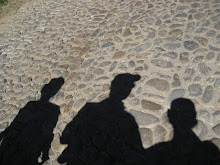Italian Renaissance: Denigration of women
- Alberti's On the Family (1443) talked about how women were consigned to purely domestic roles, asserting that "man is by nature more energetic and industrious" and that woman was created "to increase and ocnintue generations, and to nourish and preserve those already born"
- Castiglione: The Book of the Courtier (1528) talked about how court ladies could be "gracious entertainers" [all quotations taken from Coffin]
- at this point in time the exemplar of female holiness: THE CELIBATE NUN
Protestant Reformation: by the 16th century, the unmarried women were considered more sexually driven and were considered a disturbance to the "natural" order of the world (where women are supposed to be subservient and subordinate to men) --> these unmarried women chose to either go to brothels or go to convents and become nuns. But the problem was that these single women DID NOT fit with the protestant model of the FAMILY as a unit for propagating the species, new believers, and as a place to provide discipline for the uncontrollable urges. So the Protestants BANNED convents (because they upset the natural order of marriage) and Brothels because they caused chaos.
- the Protestants also took autonomy away from women by closing down any source of community such as women only communities or places to discuss religious issues in public
- the protestants viewed women as spiritually equal, but socially subordinate
- protestants viewed marriage as IDEAL- parents have control over kid's marriage and it is tightly regulated by the state/church
- exemplar of female holiness: "goodwife"
Counter Reformation: cloistered the nunneries and basically shut them off from the rest of the world, but women were allowed to be celibate
- new emphasis brought upon importance of religious women--> new orders of nuns create such as the Ursulines and the Sisters of Charity
[1600's: DON'T FORGET THE WITCH HUNTS- women were clearly not trusted and not given a chance to explain themselves- instead they were just murdered because of the possibility of witchcraft. ]
THEN in the late 18th century (the Enlightenment):
- women were being viewed as companions and as friends to their husbands instead of objects; women's property was protected and more bourgeois women were being educated. Basically, the enlightenment was an age of intellectual independence and freedom from old customs and traditions. This period was all about the strength of the individual- even the individual woman. A couple of fantastic women came along by the names of Mary Wollstonecraft and Olympe de Gouges who argued for equality of the sexes with their respective pieces The Vindication of the Rights of Woman and The Rights of Woman.
- Wollstonecraft believed that natural rights were universal and therefore she argued for political and economic EQUALITY; she wanted women to have equal education so therefore she could complete her duty of educating her own children, to be an equal partner with her husband, and to be recognized as a create of reason.
- It was also believed at this time for women to remain chaste and to "put duty over their sexual pleasure"
After that...it's the French Revolution....

No comments:
Post a Comment